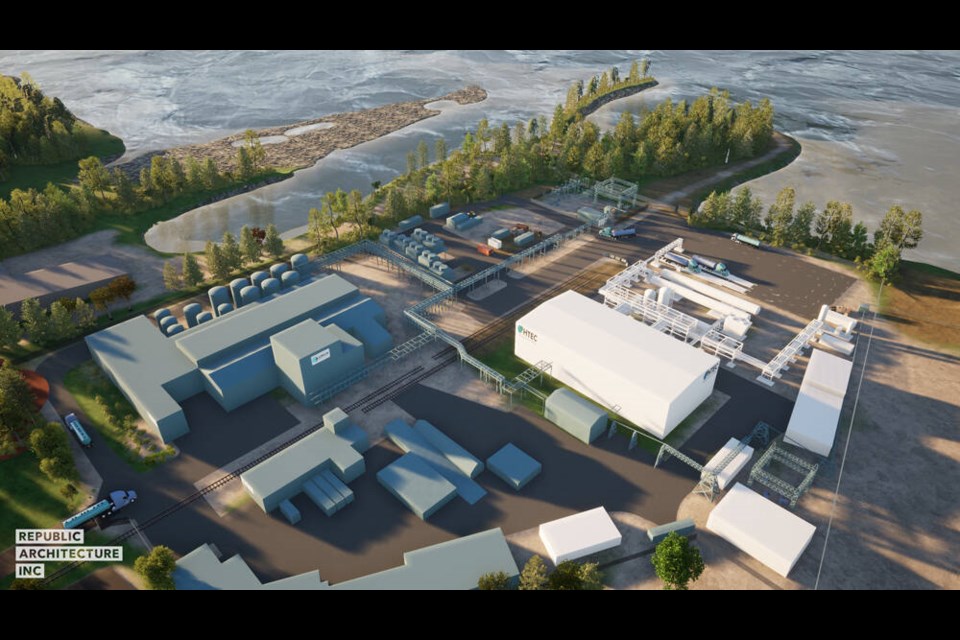District of North Vancouver council has given the OK for H.
Council voted 5-1 Monday to approve HTEC’s request to build what will be the province’s largest hydrogen liquification plant, big enough to power about 30,000 vehicles.
The liquification plant will be built on the site of the existing ERCO Worldwide property and sodium chlorate plant at the foot of Forester Street in Maplewood.
ERCO’s current infrastructure produces hydrogen as a byproduct, which quickly dissipates into the atmosphere. HTEC’s facility will capture, refine and store about 15 tonnes per day, which will be used to power the growing hydrogen fuel cell vehicle market in Metro Vancouver.
Because the facility will be powered by B.C.’s mostly hydroelectric grid, the hydrogen will have a relatively small carbon footprint – the equivalent of reducing carbon emissions by about 140,000 tonnes per year, district staff estimate, if the hydrogen is used to replace current gas and diesel burning engines..
For council, there was a general consensus about the benefits of investment on the industrial waterfront, adding new jobs, growing the tax base and facilitating the transition to cleaner energy sources.
At issue, however, was whether HTEC’s proposal would be safe.
An independent expert who produced a 102-page quantitative risk assessment for the project found a one-in-one-million risk of accidents causing death, annually, which is within federal standards.
"[It is] very, very modest and a chance that is reasonable when put into the context of the economic and societal benefits to be achieved,” said Coun. Jim Hanson.“I guess the question that I would pose is, 'who am I to substitute my views on this issue for those of a highly qualified expert and for the type of detailed study that was put into this report?'”
Coun. Betty Forbes was the lone nay vote, motivated by fears of an industrial accident at a hydrogen plant.
“It’s not a question of when it will happen. It’s a question of how dangerous is it when it does happen?” she said, noting employees at the site wouldn’t survive a major incident. “I can’t in good conscience feel OK with that. It may be a one in a million but maybe it’s one in the first 10 of the million.”
Mayor Mike Little voted in favour, saying he believed the potential for hazards stemming from HTEC’s plant had been sufficiently mitigated. But he also questioned whether there would be any environmental benefits, given the massive amounts of electricity required to capture and liquify hydrogen.
“We could probably charge a lot more than the 30,000 cars with 200 million megajoules of electricity, and so it is a thirsty customer indeed,” he said. “I have this great fear that we are not producing enough electricity in the province of B.C., that we are not producing enough infrastructure for transmission of electricity in the province of B.C. My concern in general, beyond the scope of the discussion emanating from the hearing, is that this will lead us to brownouts sooner.”



